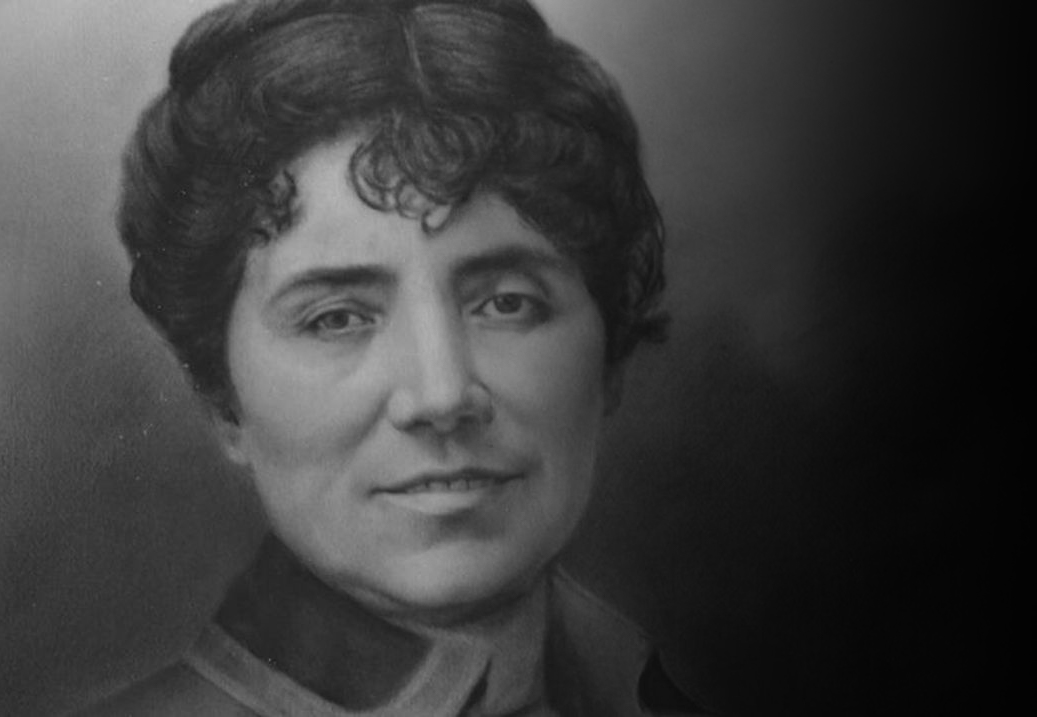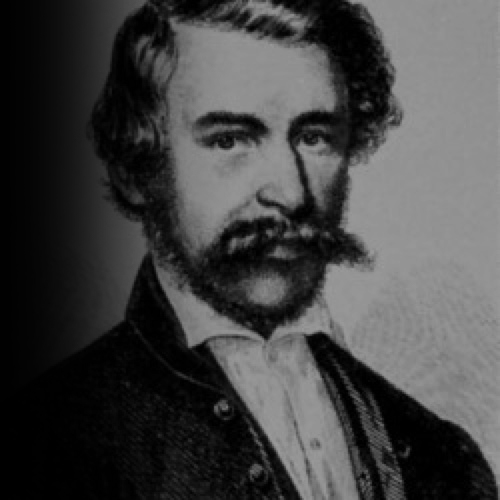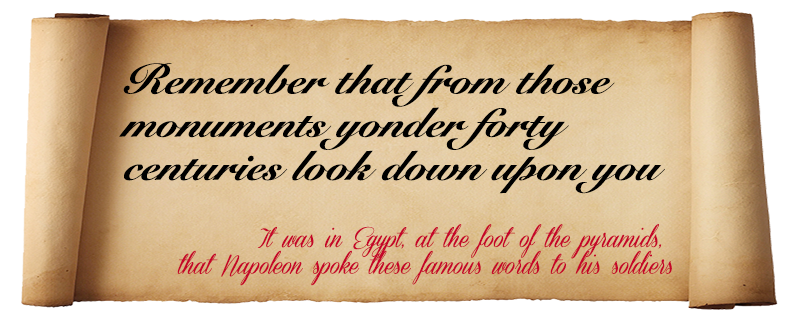Lady Hester Stanhope
Lady Hester Stanhope (1776-1839) was a British aristocrat and adventurer. Legend has it that she was the fiancée of General Sir John Moore and, every year on the anniversary of the Battle of Elviña, her ghost pays a visit to her beloved soldier’s grave.
The life of Lady Hester Stanhope needs no literary embellishment because her true adventures surpass any fiction imaginable. A woman who served as the first lady for her prime minister uncle, travelled on her own in the Middle East, lived as a Bedouin, became de facto leader of some Druze tribes, and died living as a vagrant, certainly deserves a true account of her accomplishments. Lady Hester is among those distinguished women in history who broke away from society’s conventional stereotypes and whose intense personality and determination allowed her to live a free and adventurous life.
John Moore was a good friend of the Stanhope family and two of Lady Hester’s brothers, Charles and James, served as his aides-de-camp. However, there is no evidence of a relationship beyond friendship between her and Moore—perhaps they had been very discreet. There are only indications of Lady Hester’s supposed infatuation through some correspondence after an illness that impaired her faculties.
The demise of Charles Stanhope and John Moore in the Battle of Elviña, as well as her uncle, Prime Minister William Pitt, dealt a heavy blow to Lady Hester and marked the beginning of her adventurous life.
As for the large ghostly silhouette that visits the grave, the inventors of the myth were aware that Lady Hester was 180 cm tall, an unusual height for her time, but they overlooked the fact that her brother Charles also died the same day as Moore in the Battle of Elviña, whom the inconsiderate ghost seems to have forgotten.
Egipto and Waterloo
LIVES ENTWINED
It is a little-known fact that a large part of the British army which was fighting against the French force in Galicia had already confronted Napoleon’s troops in the past.
The famous Egyptian Campaign was the cradle of a legend that would linger on for two hundred years. During the military expedition to Egypt, Napoleon was still a general with no political power, and yet he was able to act as a political and military leader. Though the campaign was unsuccessful, it created an aura of glory around the general who surrounded himself with scientists, painters and writers that would contribute to disseminating his exploits.
It was in Egypt that the two armies came face to face for the first time. In the years that followed, their paths would cross several times more. John Moore led the 52nd regiment in Egypt, repeatedly fighting the French Revolutionary Army.
The next encounter took place during the invasion of Galicia followed by the Battle of Elviña―also known as the Battle of Corunna―where the Scottish corps fought the French army. “My brave Highlanders, remember Egypt!”, said British General John Moore to his countrymen.
Moore was killed in the battle and was buried in A Coruña. However, a clever strategy allowed his army to embark for England and create one last chapter in history.
The army that was deteriorating due to illness, privation and exhaustion, as per Moore’s letters to the command headquarters, needed rest and recovery before being able to fight again. The same army ended up playing a fundamental role in the final battle that saw multiple alliances bring an end to the Napoleonic era: The historical Battle of Waterloo.
THE GERMAN LEGION IN A CORUÑA
When Napoleon occupied Hanover in 1803, many of its troops expatriated to the United Kingdom. There, they ended up forming what was called the King’s German Regiment as a light infantry unit, which was subsequently joined by the cavalry and artillery, and finally came to be known as the King’s German Legion. This legion, formed mainly by German personnel, fought alongside the British army, first under the command of Sir John Moore and later under the Duke of Wellington. The King’s German Legion finally fought at Waterloo before being disbanded in 1816 when most of its members returned to Hanover.
Soult was reviled in Spain especially because of the looting of artworks that he carried out in Seville in the name of King Joseph Bonaparte under the pretext of founding a national museum in Madrid. This deplorable act was performed in a city like Seville, which was not taken by force, since it had capitulated and, therefore, was supposed to be fully respected. But on the contrary, Soult acted as a predator of the most precious paintings treasured by the city. He stole around a thousand works from the religious buildings and stored them in Seville’s Alcázar (royal palace). To make matters worse, he illegally took the best paintings that were to his liking and later shipped them to Paris, where he ostentatiously exhibited them in his residence. He was a greedy man who made a great fortune and, undoubtedly, used the aesthetic value of these artworks to achieve his prominent social status.
The Quest for Gold
It is said that the British army had brought along a huge shipment of gold. The gold coins were intended to pay the British troops and to buy provisions and material when necessary. The need to change the military strategy led the British to retreat throughout Castile and carry the gold that never came to be used. Although most of the soldiers managed to return to the United Kingdom, the gold never arrived. Some say that it was being transported in one of the ships that the French cannons sank while attacking the British ships during their departure. The remains of several shipwrecks have been discovered in front of the Castle of San Antón; however, an in-depth investigation has not been possible.
Others believe that it was buried somewhere in the district of Los Ancares. Sunken or buried, one thing is for sure, the gold has not appeared in all these years even though many a scholar has gone to great lengths to find the long-lost treasure.

Poem by
Rosalia de Castro
¡Cuán lejos, cuánto, de las oscuras nieblas,
de los verdes pinos, las fervientes olas
que nacer lo vieron!... de los paternos lares,
del cielo de la patria que lo alumbró mimoso,
de los lugares, ¡ay! por él queridos, ¡cuán lejos!...
vino a caer, bajo enemigo golpe
para no levantarse nunca más, ¡cuitado!
¡Morir así en playas extranjeras,
morir tan joven, abandonar la vida
no harto todavía de vivir y ansiando
gozar del fruto que cultivado hubiera!
¡Y en lugar de las hojas del laurel altivo
que del héroe coronan la viril cabeza,
bajar hasta la tumba silenciosa y muda!...
¡Oh blancos cisnes de las britanas islas,
oh arboledas que bordeáis, galanas,
los mansos ríos, las riberas verdes,
y los frescos campos donde John corriera!...
Si a vosotros, un amargo gemido quejumbroso
llegó de aquel que en el postrer aliento
os dijo ¡adiós! con amorosas ansias
volviendo hacia vosotros el pensamiento último,
que de su mente se escapaba, inerme,
¡con qué pesar, con qué dolor sin nombre
con qué extrañeza sin igual diríais
también ¡adiós¡ al que tan lejos, tanto,
de la patria, solo, hasta la eternidad bajaba!
Y el gran sillón, la colgadura inmóvil
del para siempre abandonado lecho;
la fría ceniza del hogar sin lumbre,
la blanda alfombra que leal conserva
del pie del muerto una señal visible,
el perro que al amo ausente aguarda
y lo busca errante por los yermos caminos,
las crecidas yerbas de la alameda oscura
por donde antaño él se solazaba,
el siempre idéntico murmullo de la fuente
en que al atardecer sentar solía...
¡Cómo hablarían sin parar de Moore,
con su callado, afligido lenguaje,
los ojos, ay, de quienes le lloraban!
¡Ya nunca más, ya nunca más, oh triste,
ha de volver donde por él aguardan!
Partió valiente, a combatir con gloria.
¡Partió, partió!..., y no volvió, pues la muerte
le segó allá en campos extranjeros,
cual flor que cae donde su simiente
no encuentra tierra en la que echar raíces.
Lejos caíste, pobre John, de la tumba
donde con los tuyos descansar pensaste.
En tierra extraña tus restos aún duermen
y aquellos que te amaron y de ti se acuerdan,
al mirar las olas del velado Océano,
dolientes dirán, en sus playas nativas:
- ¡Allá está él, tras ese mar bravío;
allá quedó, quizás, quizás por siempre;
tumba adonde nadie va a llorar cobija
las amadas cenizas que nosotros perdimos!...
Y los tristes vientos y las calladas brisas
que los muertos aman si apartados duermen
del solar patrio, a refrescarte vienen
en las cálidas noches de verano y traen
para ti en las alas cariñosas quejas,
blandos suspiros, amorosos ecos,
alguna lágrima sin enjugar, que moja
la seca piedra del mausoleo frío,
de tu país algún perfume agreste.
¡Pero qué hermosa y sin igual morada
le cupo en suerte a tus mortales restos!...
¡Quisiera Dios que para ti no fuera
noble extranjero habitación ajena!...
Pues no hay poeta, ensoñador espíritu,
no puede haberlo, que al ver en el otoño
la mar de seca amarillenta hoja
que con amor tu mausoleo guarda;
contemplando en las frescas mañanas
del mes de Mayo las sonrosadas luces
que alegres siempre a visitarte vienen,
no exclame: "¡Ojalá cuando muera, pudiera yo
dormir en paz en tal jardín florido,
cerca del mar... del cementerio lejos!..."
Pues jamás oyes, Moore,
llantos amargos, quejumbrosos rezos,
ni los otros muertos a convocarte vienen,
para que con ellos en la callada noche
la incierta danza de los sepulcros bailes.
Tan sólo el dulce aliento del brote que se abre,
de la flor que esboza su último adiós,
travieso rebullir, infantil risa
de hermosos niños que a esconderse vienen
sin sentir miedo tras del sepulcro blanco.
Y alguna vez, ¡muchas quizás¡, suspiros
de ardiente amor que el viento lleva dónde
sábelo Dios... por sin igual compaña
dichoso tienes en la postrera estancia.
¡Y el mar, el mar, el mar bravío que ruge
cual ruge aquel que te arrulló en la cuna,
vive a tu lado, viene a besar las piedras
de un suelo amante que con amor te guarda,
y alrededor de ti deja crecer las rosas!
¡Descansa en paz, descansa en paz, oh, Moore!
Y vosotros que le amáis, de vuestro honor celosos,
hijos de Albión, quedad tranquilos.
Hidalga tierra es esta tierra nuestra -tanto
como Dios la quiso hacer hermosa-, bien sabe
honrar a quien honra merece,
y honrado así, cual mereció, fue Moore.
No está solo en su tumba: un pueblo
con su respeto compasivo vela
por el extraño a quien traidora muerte
alejado mantuvo de los suyos, y a otros
vino a solicitar postrer asilo.
Cuando del mar atraveséis las ondas
y a vuestro hermano a visitar vengáis,
aplicad al sepulcro el cariñoso oído,
y si sentís removerse las cenizas
y si escucháis indefinibles voces
y si entendéis lo que esas voces dicen,
vuestra alma sentirá consuelo.
¡Él os dirá que alrededor del mundo
tumba mejor que la que halló no hallara
excepto el amoroso abrazo de los suyos!
Not a drum was heard, not a funeral note,
As his corse to the rampart we hurried;
Not a soldier discharged his farewell shot
O’er the grave where our hero we buried.
We buried him darkly at dead of night,
The sods with our bayonets turning;
By the struggling moonbeam’s misty light,
And the lantern dimly burning.
No useless coffin enclosed his breast,
Nor in sheet nor shroud we wound him;
But he lay like a warrior taking his rest
With his martial cloak around him.
Few and short were the prayers we said,
And we spoke not a word of sorrow;
But we steadfastly gaz’d on the face that was dead,
And we bitterly thought of the morrow.
We thought, as we hollow’d his narrow bed,
And smooth’d down his lonely pillow,
That the foe and the stranger would tread o’er his head,
And we far away on the billow!
Lightly they’ll talk of the spirit that’s gone,
And o’er his cold ashes upbraid him,-
But little he’ll reck, if they let him sleep on
In the grave where a Briton has laid him.
But half of our heavy task was done
When the clock struck the hour for retiring;
And we heard the distant and random gun
That the foe was sullenly firing.
Slowly and sadly we laid him down,
From the field of his fame fresh and gory;
We carved not a line, and we raised not a stone-
But we left him along with his glory!

